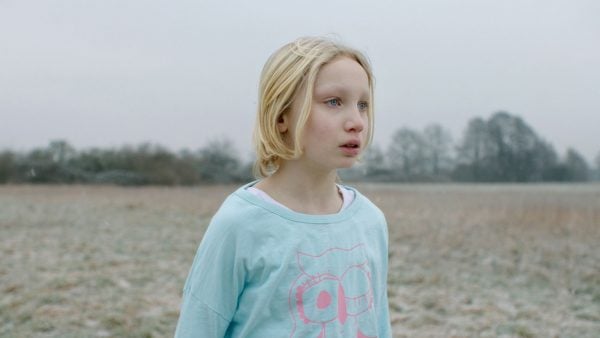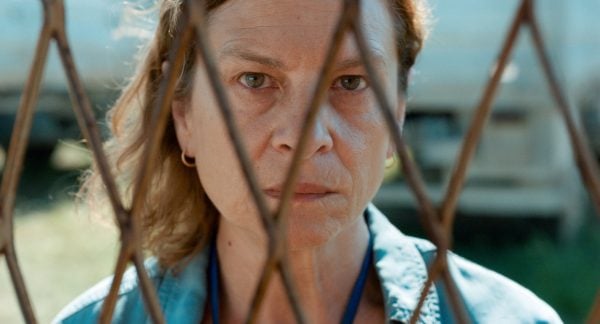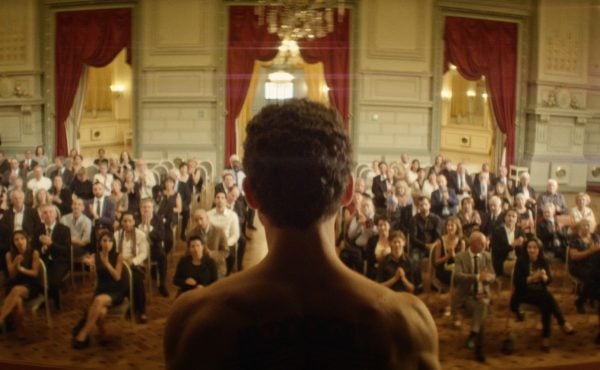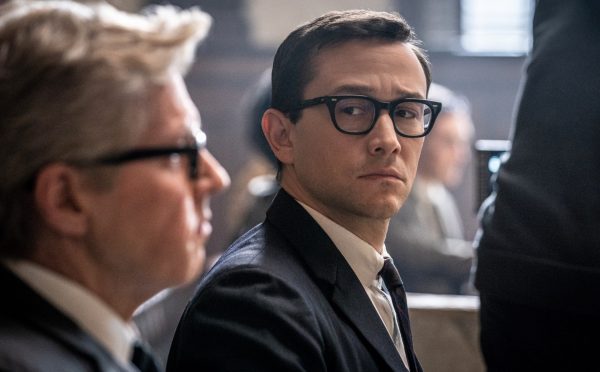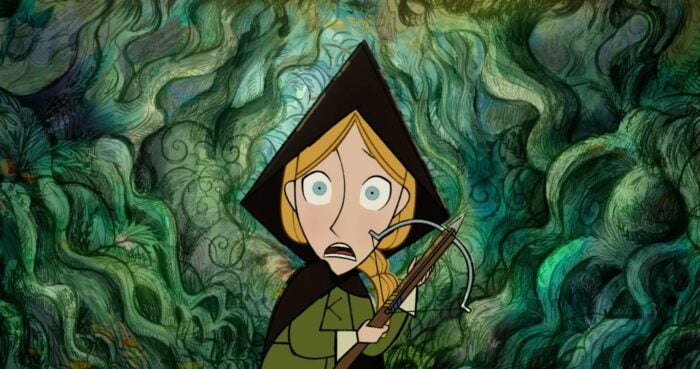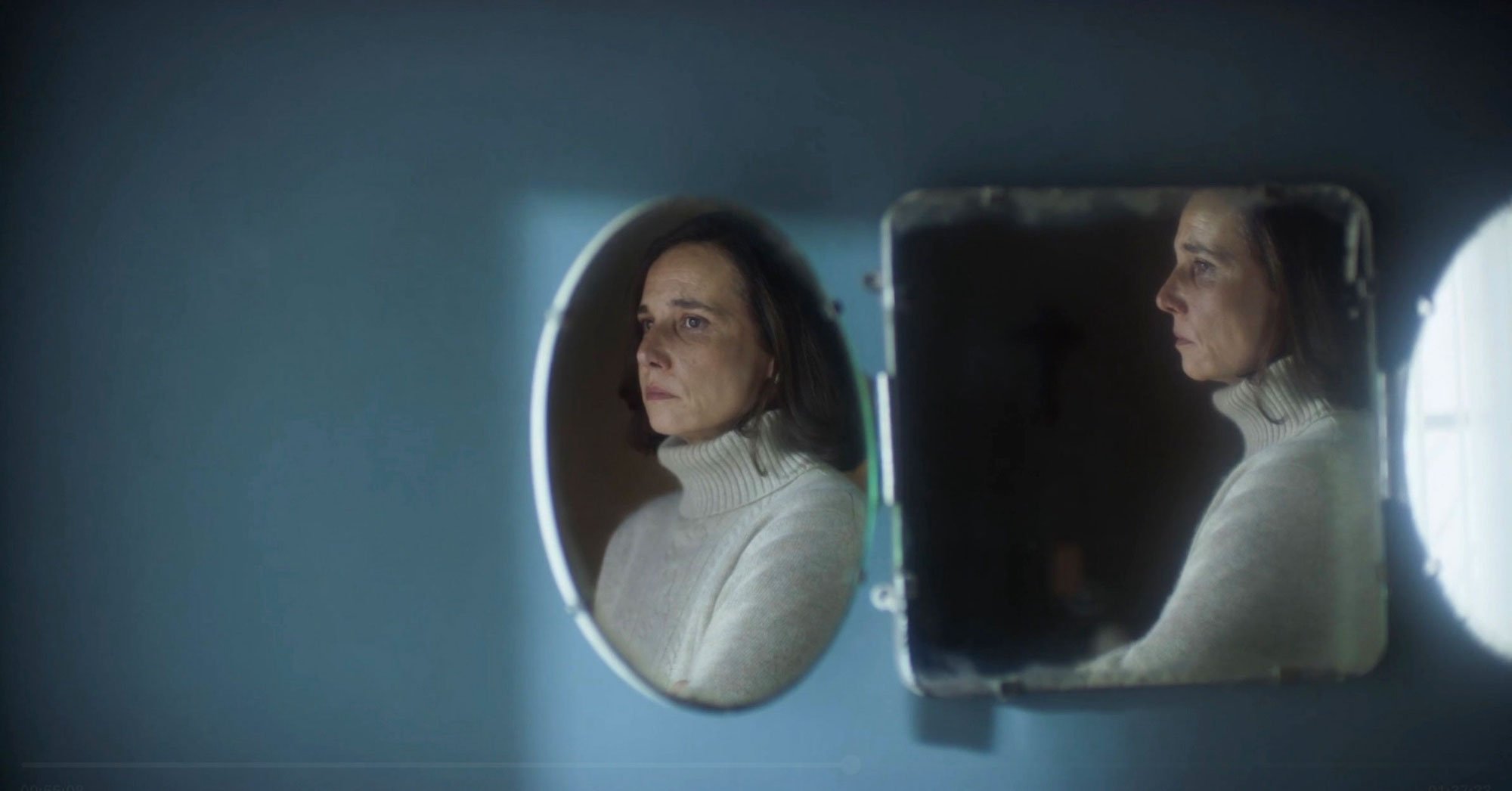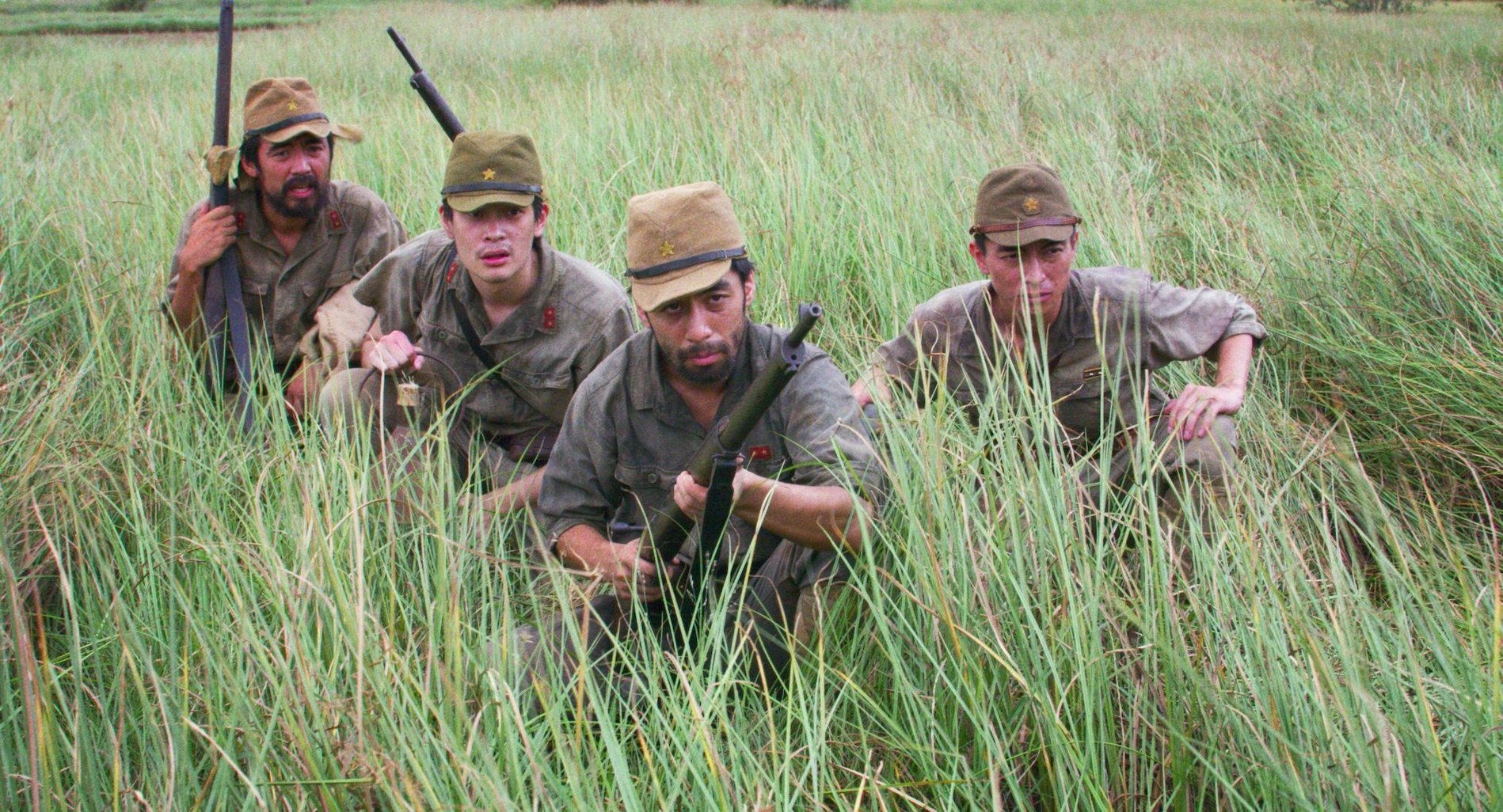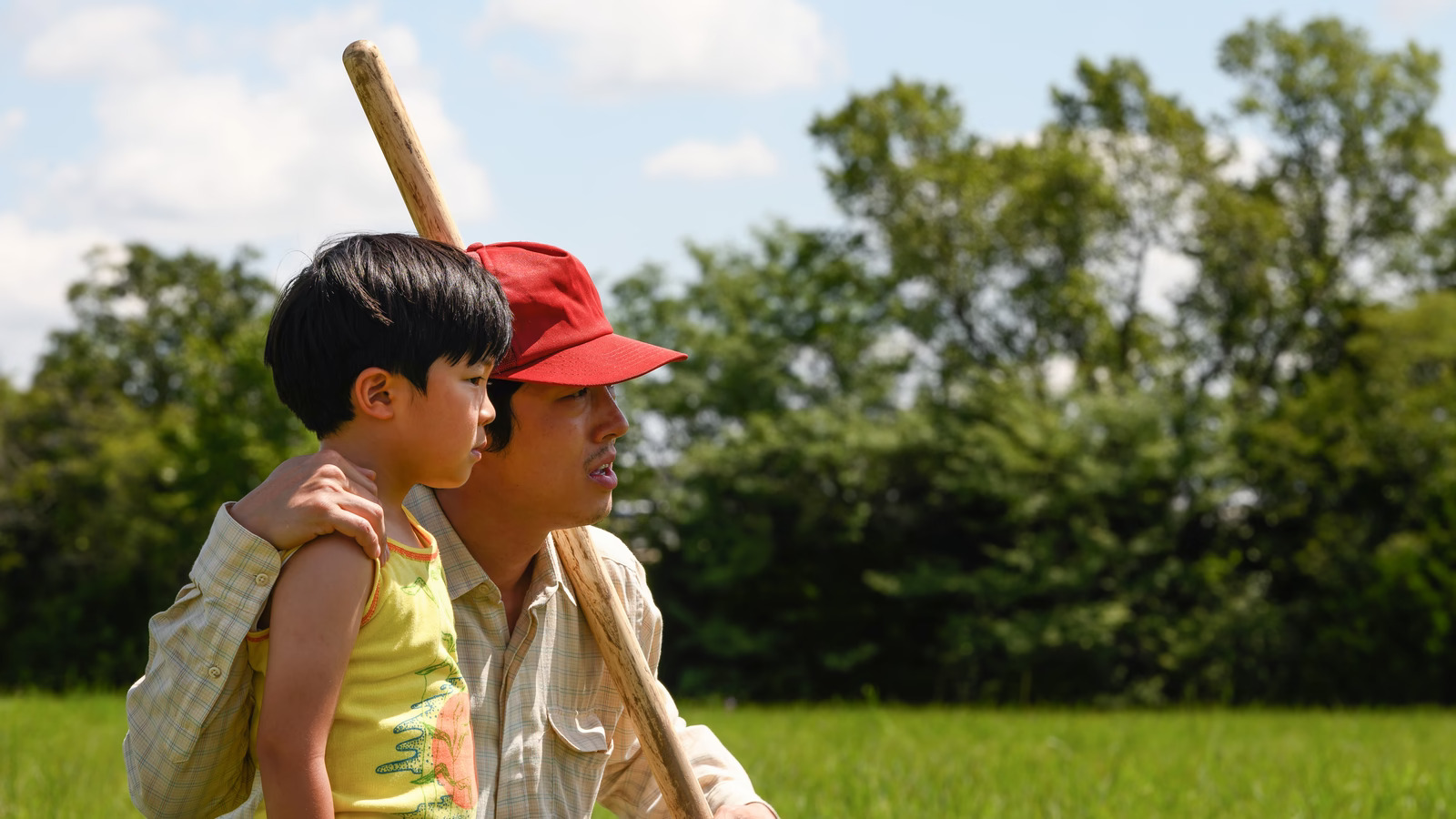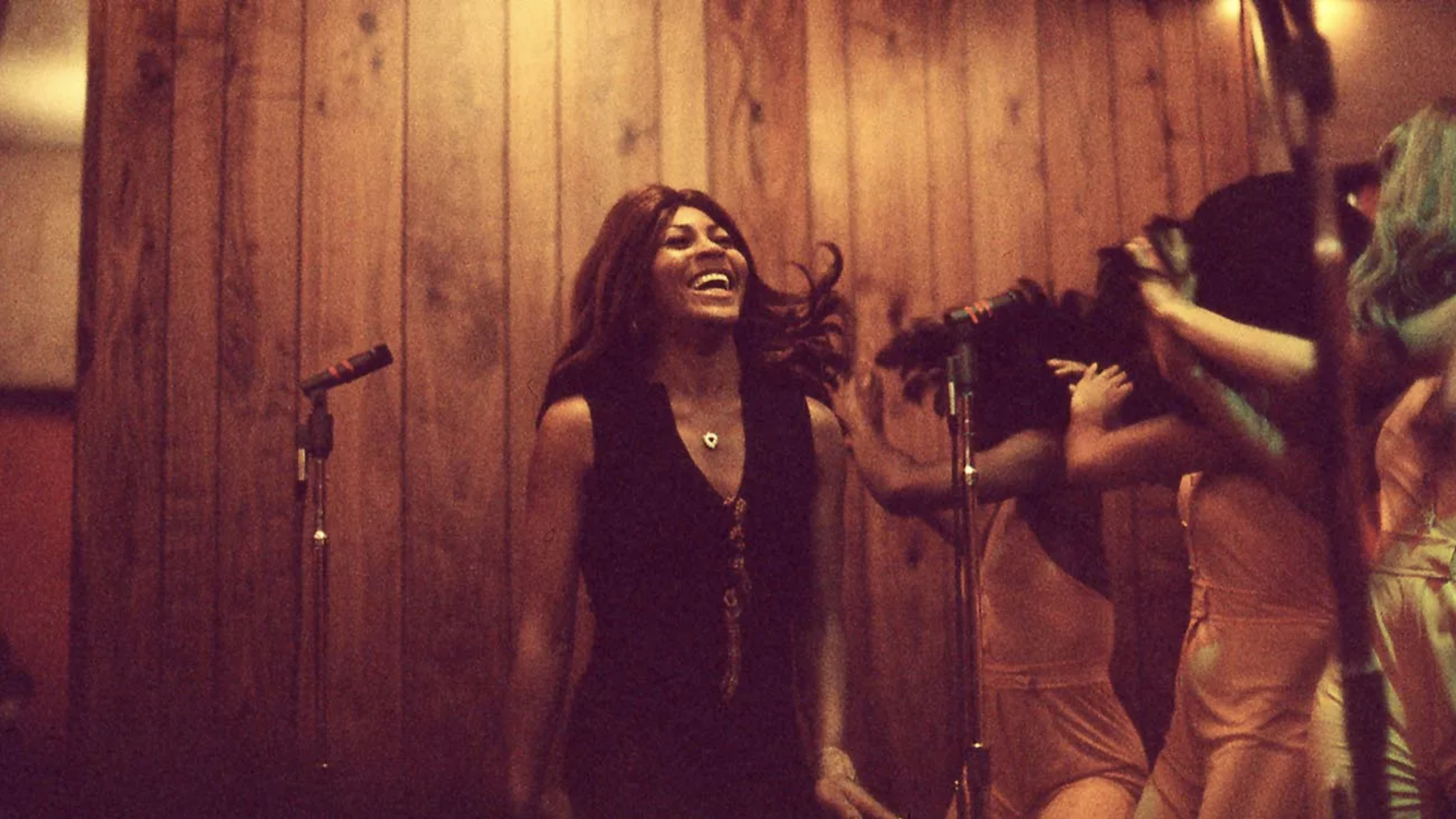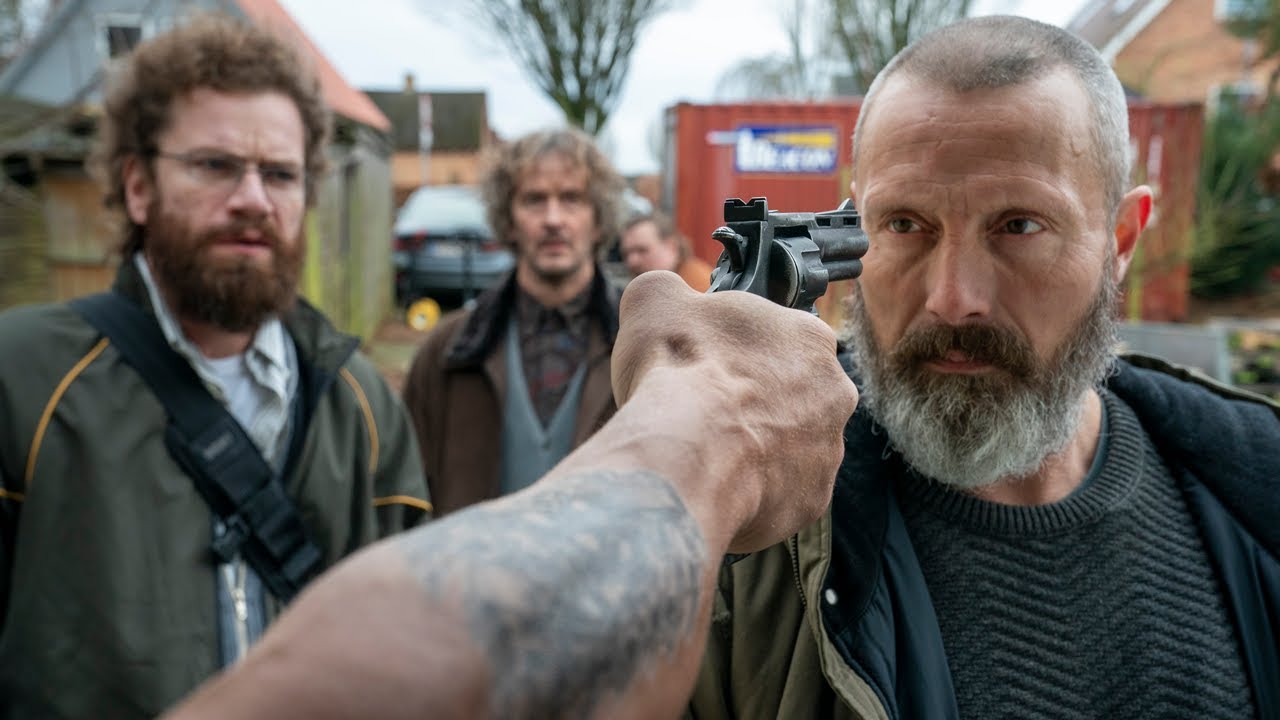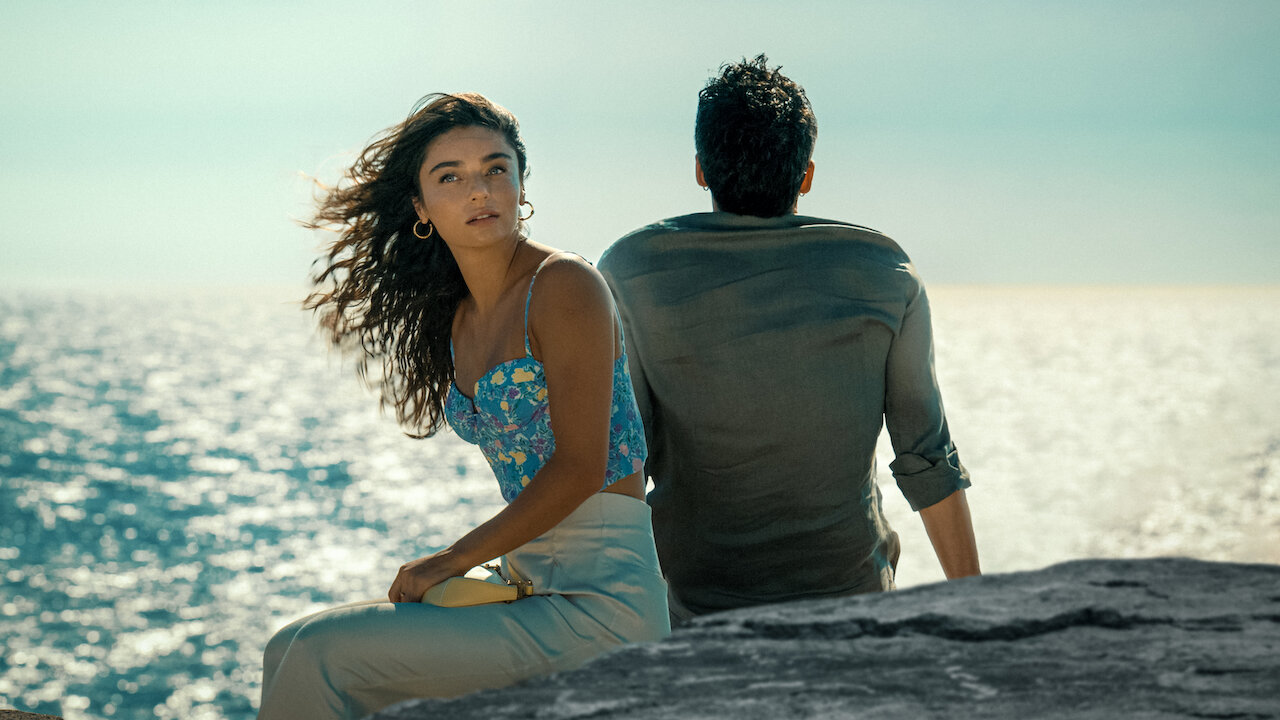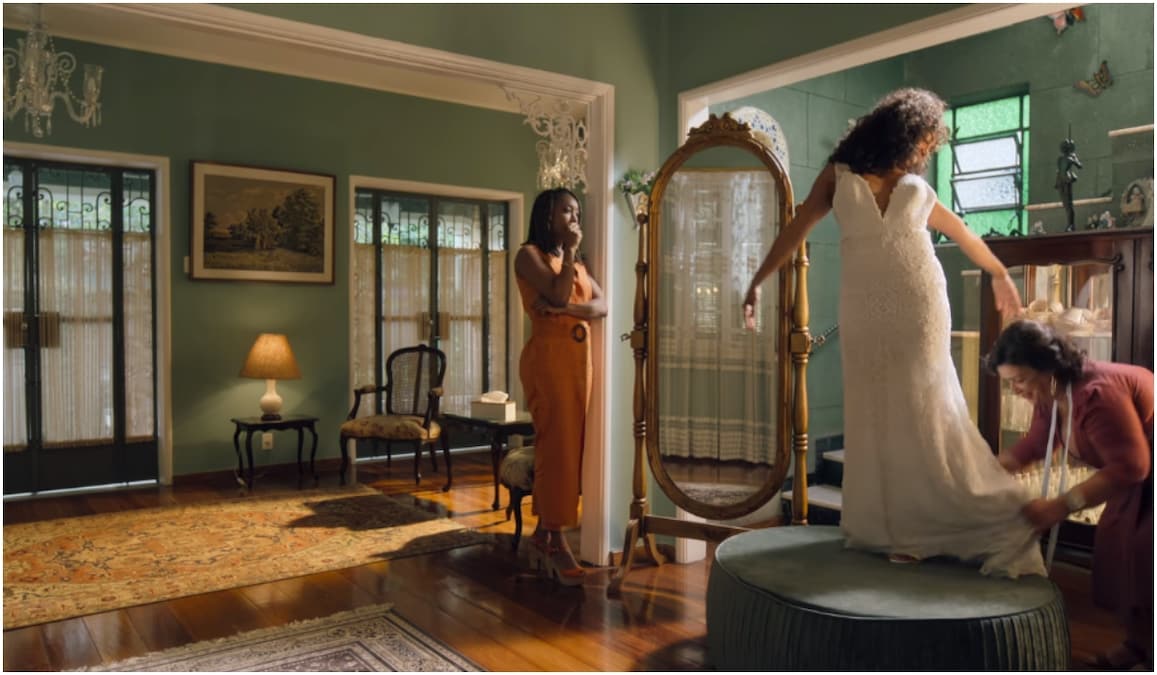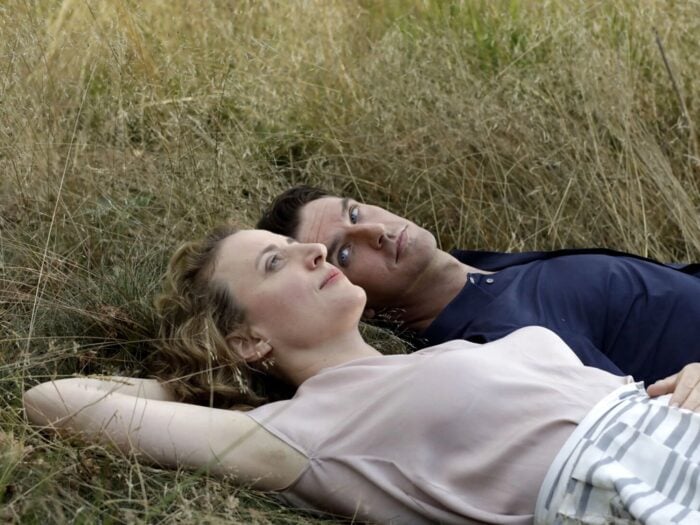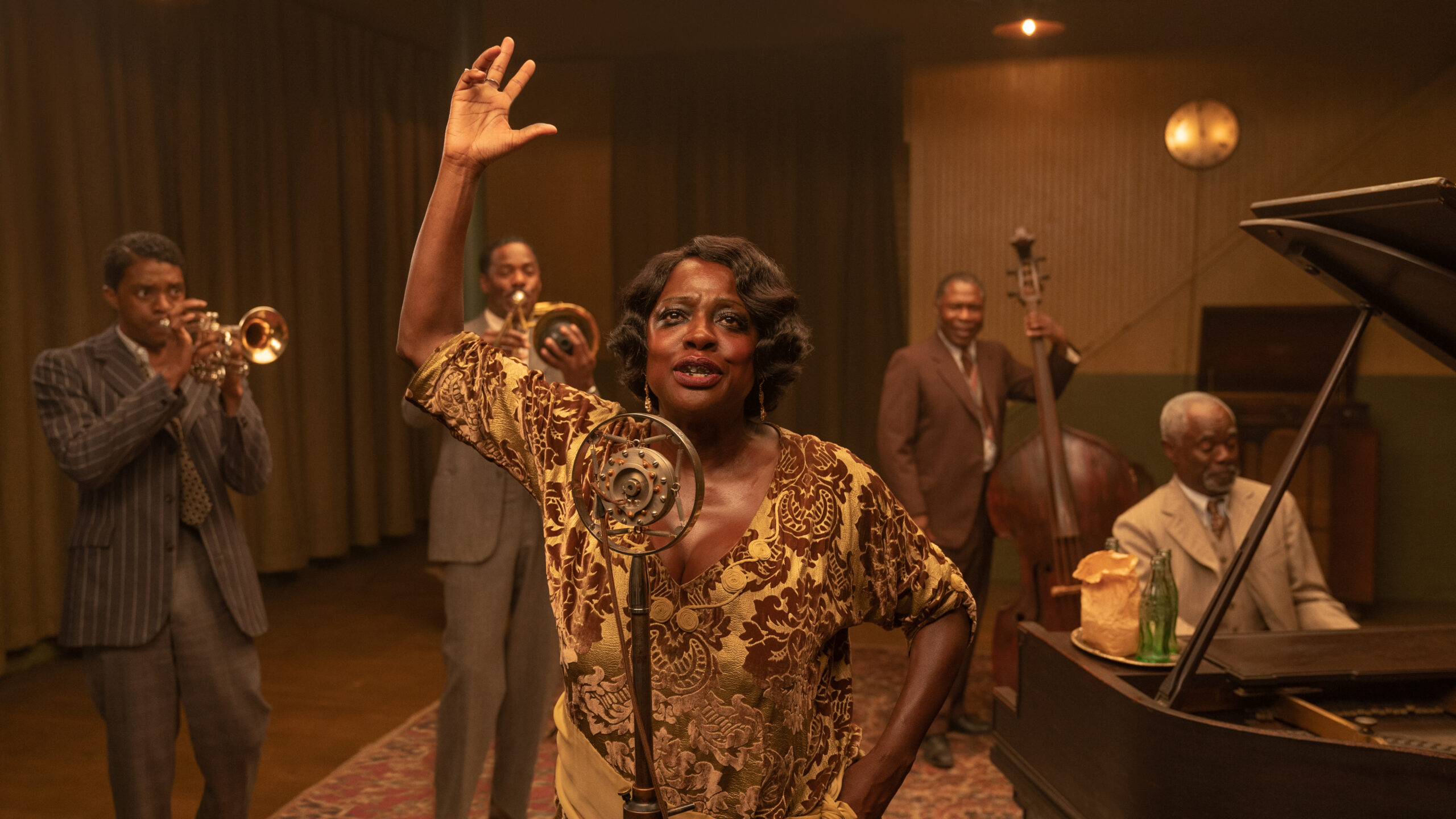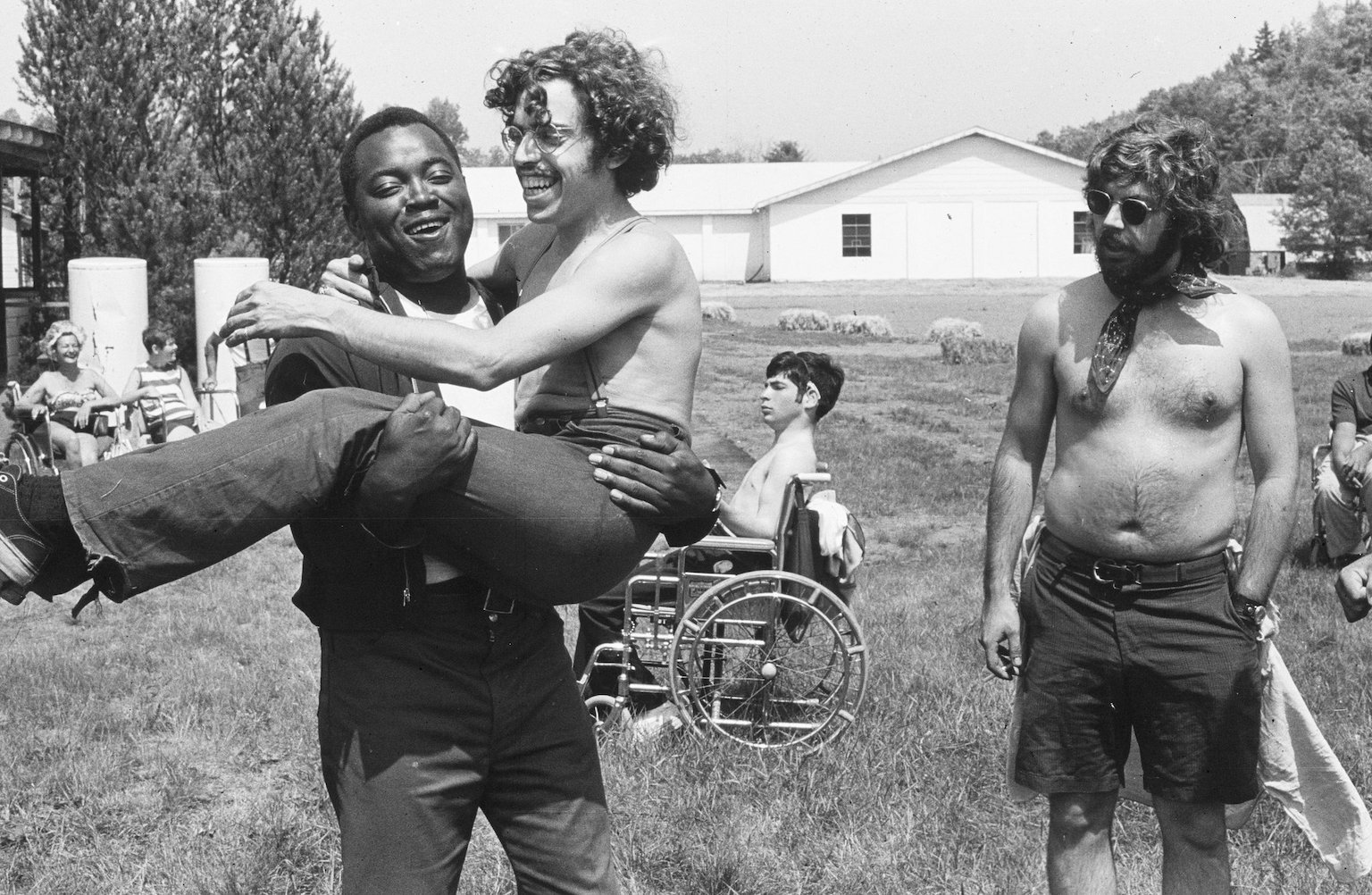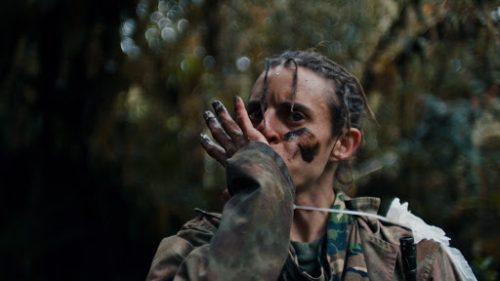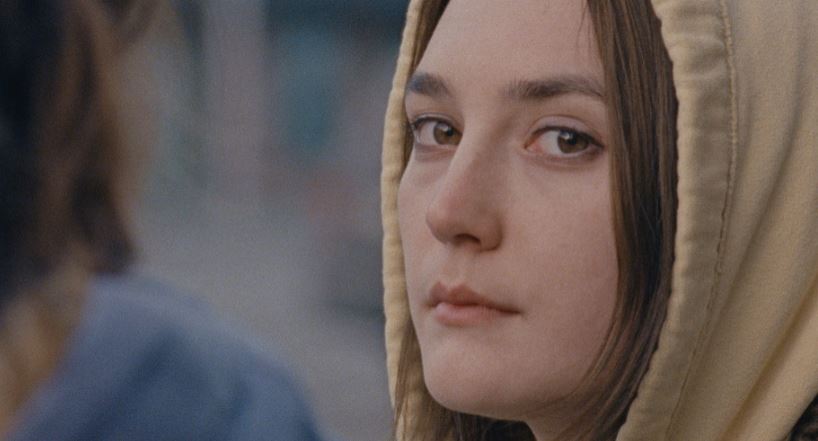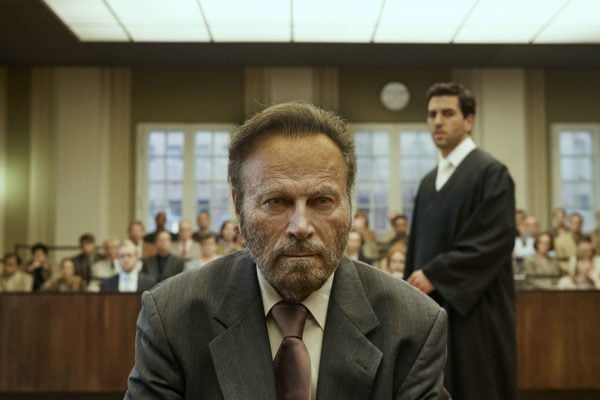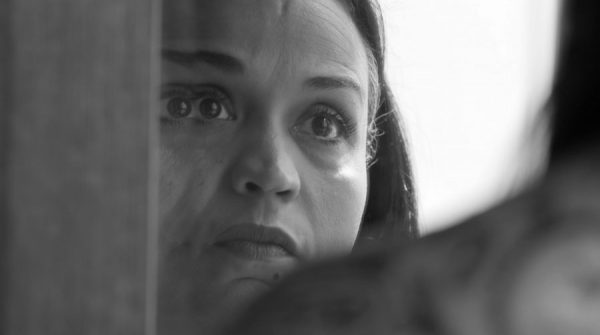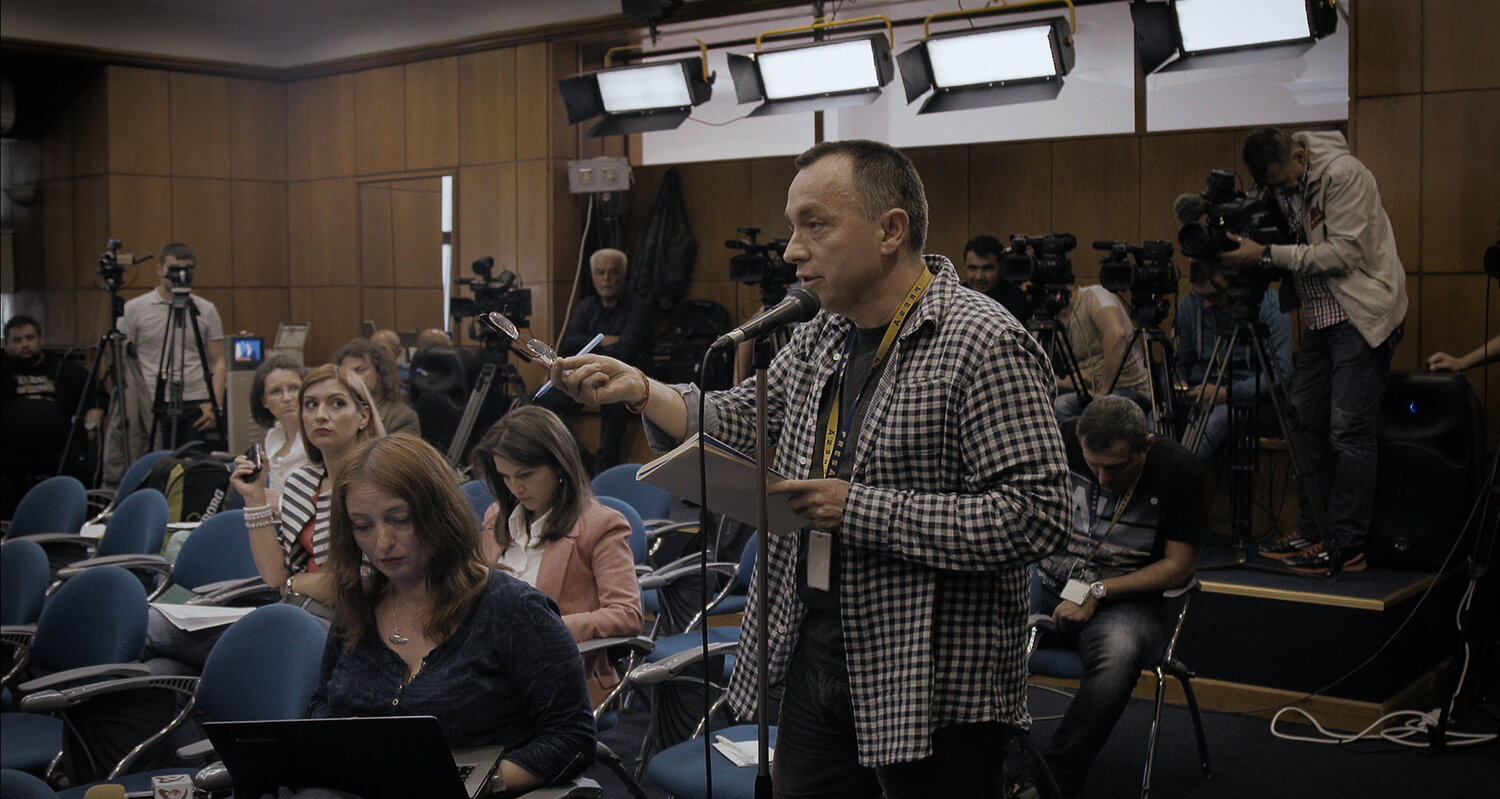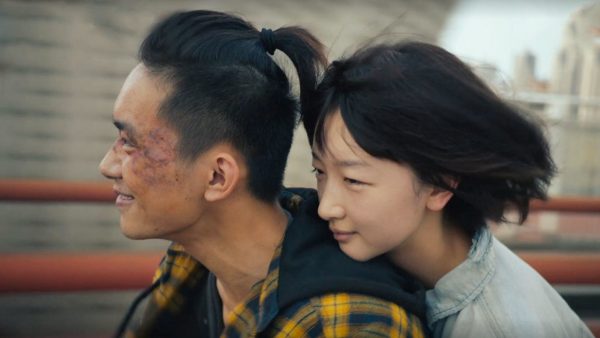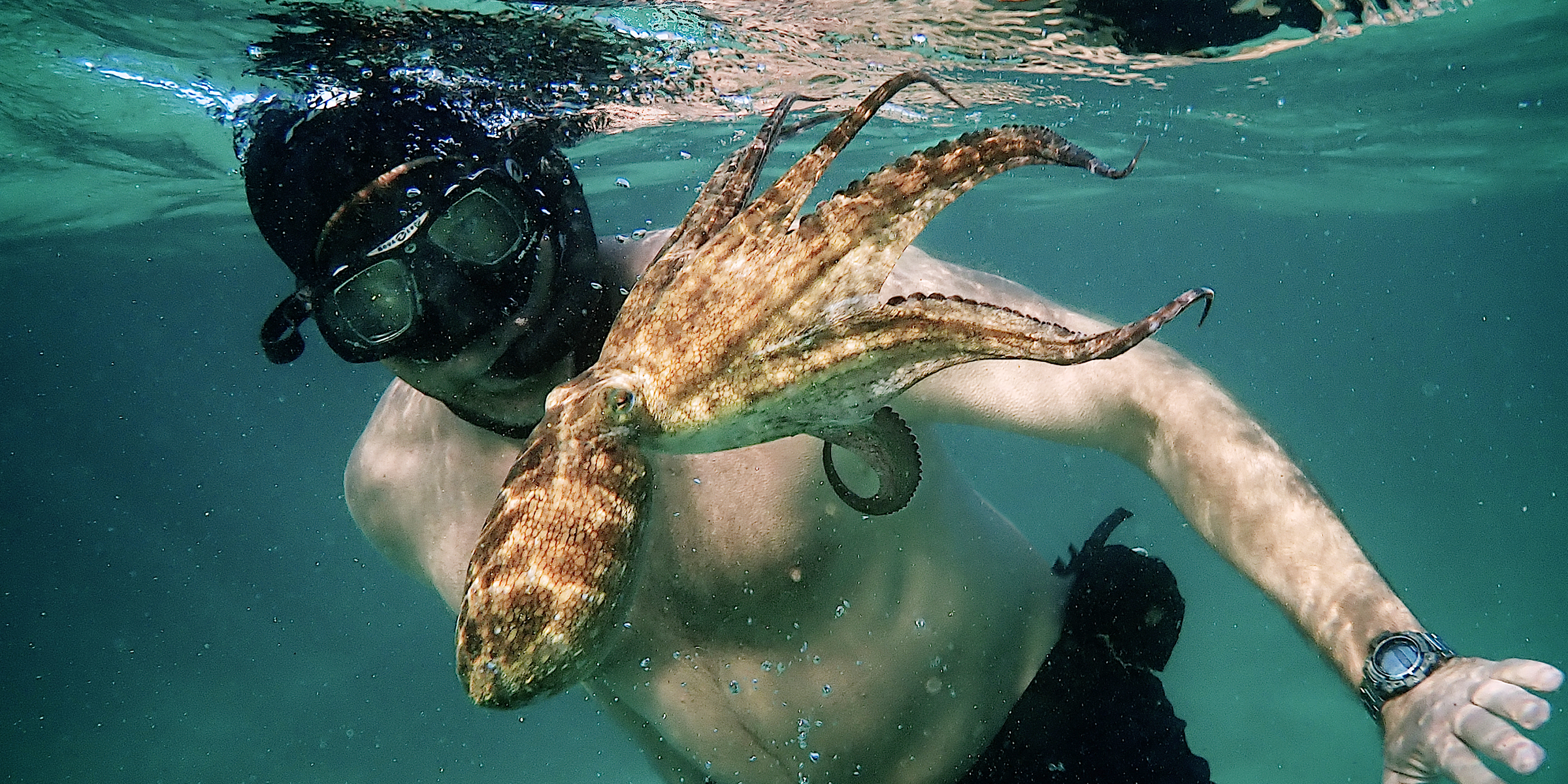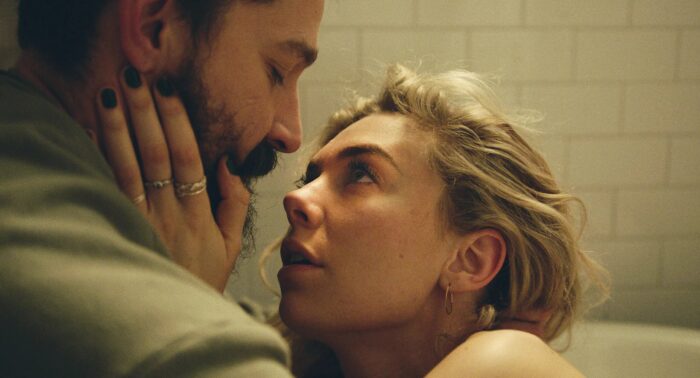Movies Like The Father (2020)
Fire of Love is a documentary that follows Maurice and Katia Krafft, a scientist couple who’ve dedicated their entire professional lives to studying (and marveling at) volcanoes. The two met at university and have been inseparable ever since, chasing explosions around the world until their death at the Mount Unzen eruption in 1991. The fiery […]
Led by Rosy McEwen’s commanding performance brimming with fear and self-loathing, Blue Jean pours all of the anguish and defiance felt by the LGBTQ+ community under Margaret Thatcher’s administration into a single character. Writer-director Georgia Oakley keeps her plot light, but through conversations with other beautifully portrayed queer women (especially those played by Kerrie Hayes […]
There’s a remarkable harshness to every moment of I Have Electric Dreams, even if it doesn’t seem like much is happening. Beautiful textures in its cinematography and the dreamlike movement of its editing can’t mask the pain that protagonist Eva feels, as she drifts through the ruin of her own family in search of any […]
Many films have tried to decipher the indecipherable bond between mothers and daughters. Lady Bird, Everything Everywhere All at Once, and Turning Red, to name a few, center on this particular relationship, which to outsiders may seem strange at best and dysfunctional at worst. How can mothers yell at their daughters one second and coddle […]
One of the most thrilling biographical films to come out of Hollywood in the 2020s, Shaka King’s exhilarating take on a truly remarkable leader within the Black Panther Party—and the young man who would eventually be twisted into betraying him—also provides a respectful, honest space to voice out progressive views that still aren’t fully embraced […]
Director Thomas Vinterberg (The Hunt) reunites with Mads Mikkelsen to tell the story of four teachers going through a mid-life crisis. They’re not sad, exactly—they have homes and jobs and are good friends with each other—but they’re not happy either. Unlike the ebullient youth they teach, they seem to have lost their lust for life, […]
Ahmed plays Ruben Stone, a heavy metal drummer, who plays in a band and lives in a tour bus with his girlfriend Lou (Olivia Cooke). Quickly after meeting the couple, we witness the touring musician drastically losing his hearing. As recovering addicts with little financial means, they soon run out of options. Lou desperately wants […]
Sometimes, to get to know one’s self, one has to get out of their usual life. This is what makes the idea of travel so alluring, and Dhak Dhak is one such movie that portrays that idea, with some twists. Instead of a car, four women ride with motorcycles, and instead of flat plains, the […]
This stagelike historical drama is about a meeting between Malcolm X, Jim Brown, Sam Cooke, and Muhammad Ali, the night Ali became world champion and announced he became Muslim. And here is the thing: Malcolm X and Muhammed Ali have been portrayed many times in film, but never with this much nuance. Their relationship with […]
While quite testing for viewers, this is one of the craziest, most high-energy movies you’ll ever watch. In this incredible German drama, child actor Helena Zengel plays Bernadette aka Benni, a traumatized 9-year-old child who tends to lash out and has been repeatedly suspended from every school she went to. Benni is a so-called “Systemsprenger” […]
This Oscar-nominated drama tells the story of the events leading up to the Srebrenica massacre, in which 8372 Bosnian Muslims were killed. It focuses on one U.N. worker who was caught between trying to protect her family, herself, and helping people in need. The film is as horrific as it is relevant: up until the […]
Tunisian director Kaouther Ben Hania’s new movie is about an arrogant European artist who tattoos a Syrian man’s back, essentially turning the man’s body into artwork. The man, as a commodity, is able to travel the world freely to be in art galleries, something as a simple human with a Syrian passport he couldn’t do. […]
From Aaron Sorkin, the creator of every liberal’s favorite 2000s political drama, The West Wing, The Social Network, and the master of the “walk and talk”, comes the dramatization of a sadly true American story from the mid-last century. In 1968, different groups from all over the country travelled to Chicago to protest the Vietnam […]
Set in 1650 against the backdrop of the English colonization of Ireland, Wolfwalkers follows the story of Robyn, a young apprentice hunter who arrives in Ireland with her father to wipe out the last wolf pack. Completing the “Irish Folklore Trilogy,” Tomm Moore’s film is a tale of sisterhood, friendship, and acceptance told with phenomenal […]
Chile 76 takes place three years after the dictator Augusto Pinochet took over the country and cracked down on dissenting groups and rebels. There was political strife and unnecessary violence, but almost none of this plays out explicitly in the film. Instead, we mostly follow Carmen, who seems to be going through a crisis of […]
It’s an incredible story, but it’s one that only really deserves to be told a certain way, which director Arthur Harari gets right. Onoda’s one-man crusade to continue World War II is nothing short of delusional, and Harari spends most of the film following the soldier as his companions die one by one, worsening his […]
Minari is a film written and directed by Lee Isaac Chung, about a Korean-American family in search of the so-called American Dream. It is an intimate drama that is powerful yet quiet, and filled with moments of innocence. With dreamlike scoring, unique characters, and a captivating climax, this movie tugs on the heartstrings, and serves […]
A music documentary with its star as one of its main talking heads runs the risk of coming off like cheap PR, but Tina Turner’s own articulate insights never restrict this retrospective on her life. If anything, she assists directors Dan Lindsay and TJ Martin in expanding the film’s scope to cover the origins of […]
Don’t let the title and poster fool you—Riders of Justice isn’t the testosterone-filled action flick you’d expect going in (though it does get ridiculous at some points). It centers on deployed military man Markus, played by the appropriately masculine Mads Mikkelsen, who has to return home to his teenage daughter Mathilde after his wife dies […]
Seemingly engineered in a lab to appeal strictly to romantic comedy enthusiasts who are familiar with every trope, Make Me Believe is charming and enjoyable in the moment, but ultimately does little with its ingredients. The things that it gets right are pretty foolproof: beautiful Turkish locales, steamy PG-rated romance, and a good dose of […]
As one would expect from what’s essentially a feature-length sports highlight reel, Bye Bye Barry compiles some stunning archival footage of Barry Sanders’ best runs, given exactly the star treatment it deserves through a grand score and endless praise from the film’s talking heads. But those who might want anything deeper—perhaps about Detroit’s football culture, […]
With plenty of films disavowing romance, sometimes, at the end of the day, you just want to curl up in bed to a cheesy romcom that earnestly believes in the power of true love. Wedding Games is one such romcom coming from Brazil, where the two lovers try to make their destination beach wedding perfect, […]
In Compartment Number 6, two different people strike an unlikely friendship during a train ride from Moscow to Murmansk. One is Laura, a Finnish student looking to observe ancient rock carvings at their destination, and the other is Ljoha, a gruff miner who hopes to secure a job once there. While the pair are initially […]
Romantically pairing up AI with humans is hardly new, and I’m Your Man is aware of that. Instead of spending way too much time explaining the advanced tech that makes the perfect mate possible, the movie zeroes in on its charismatic leads Tom the robot (Dan Stevens) and Alma the indifferent academic (Maren Eggert). Tom […]
This adaptation of a tragedy by Pulitzer Prize-winning playwright August Wilson might retain the mostly minimal setting of its source material — two rooms in a Chicago recording studio — but the searing performances at its heart more than warrant the translation to the big screen. A ferocious Viola Davis plays the titular ‘Mother of […]
This Obamas-produced documentary does much to change the way we may still view people with disabilities as helpless or to be pitied. First, Crip Camp cleans up footage from a 1970s New York summer camp for disabled teens to pristine sound and video quality, allowing us to see how vibrant and lively this community has […]
This crazy adventure thriller was Colombia’s nomination for the 2020 Oscars. “Monos” translates to monkeys, the nom de guerre of a group of teenagers holding an American hostage in an isolated bunker. Other than the occasional visit from their supervisor, they’re left to their devices, forming relationships, smoking weed, drinking, and eating psychedelic mushrooms. One […]
This difficult movie is about a seventeen-year-old from the U.S. underclass who has to deal with an unplanned pregnancy. Autumn is creative, reserved, and quiet, but those are not qualities that her environment in rural Pennsylvania seems to value. On the opposite, she is surrounded by threats, including disturbing step-father and boss characters. Dangers escalate […]
This low-stakes coming-of-age movie stars SNL’s Pete Davidson as Zeke, an aimless college dropout. His best friend, Monroe, is still in high school and is much younger and more innocent. Monroe doesn’t realize that he has a very biased outlook on life through Zeke, as he starts drug dealing, partying, and dating according to rules […]
A young lawyer has to defend a murderer after passing the bar only three months prior in this satisfying German drama. To make matters worse, the victim happens to be his mentor, a wealthy and seemingly kind-hearted business man. As for the perpetrator, he refuses to say a single word. Caspar, the lawyer, is from […]
This intimate and personal film is about Sibil Fox Rich, an entrepreneur and mother of six. Fox is driven by an unparalleled, contagious determination to succeed — so present in the mix of video diaries and present-day footage of her in Time. For the past 20 years, Rich has channeled that tenacity towards the release […]
This Mexican movie set between Queens, New York, and Monterrey, Mexico is a stunning and profound work of art. Ulises is the leader of a street dancing group that loves Cumbia, an Afro-Colombian style of music. Dancing is an alternative to being sucked in into gang life, which Ulises and his bandmates have ties to. […]
Following a group of journalists uncovering an entire architecture of institutional corruption in Romania, Collective makes for an inspiring watch—not just because these people are pursuing a story outside their usual wheelhouse, but because their enemy really is so much greater than they can handle. Yet they continue chipping away, never once backing down from […]
Better Days tells the story of Chen Nian, a quiet girl who starts experiencing bullying at her school after her classmate commits suicide for the same reason. But soon, she meets Xiao Bei, a teenage street thug who offers her protection. What starts as a melodramatic story at first becomes a gentle romance. Still, Better […]
Craig Foster’s bond with an octopus takes the spotlight in this heartfelt documentary set in the cold seas of South Africa. The title hints at the nature of this bond: the tentacled creature shows the human outsider the ropes in her watery den. Both parties have an endless curiosity about one another, giving the filmmakers […]
The movie follows Martha (Vanessa Kirby), a young wife who loses her baby in a failed home birth. She tries her best to trudge through the aftermath of loss, but her coping attempts prove to be near impossible, not least because her husband Sean (Shia LaBeouf) and mother Liz (Ellen Burstyn) continually domineer every aspect […]
























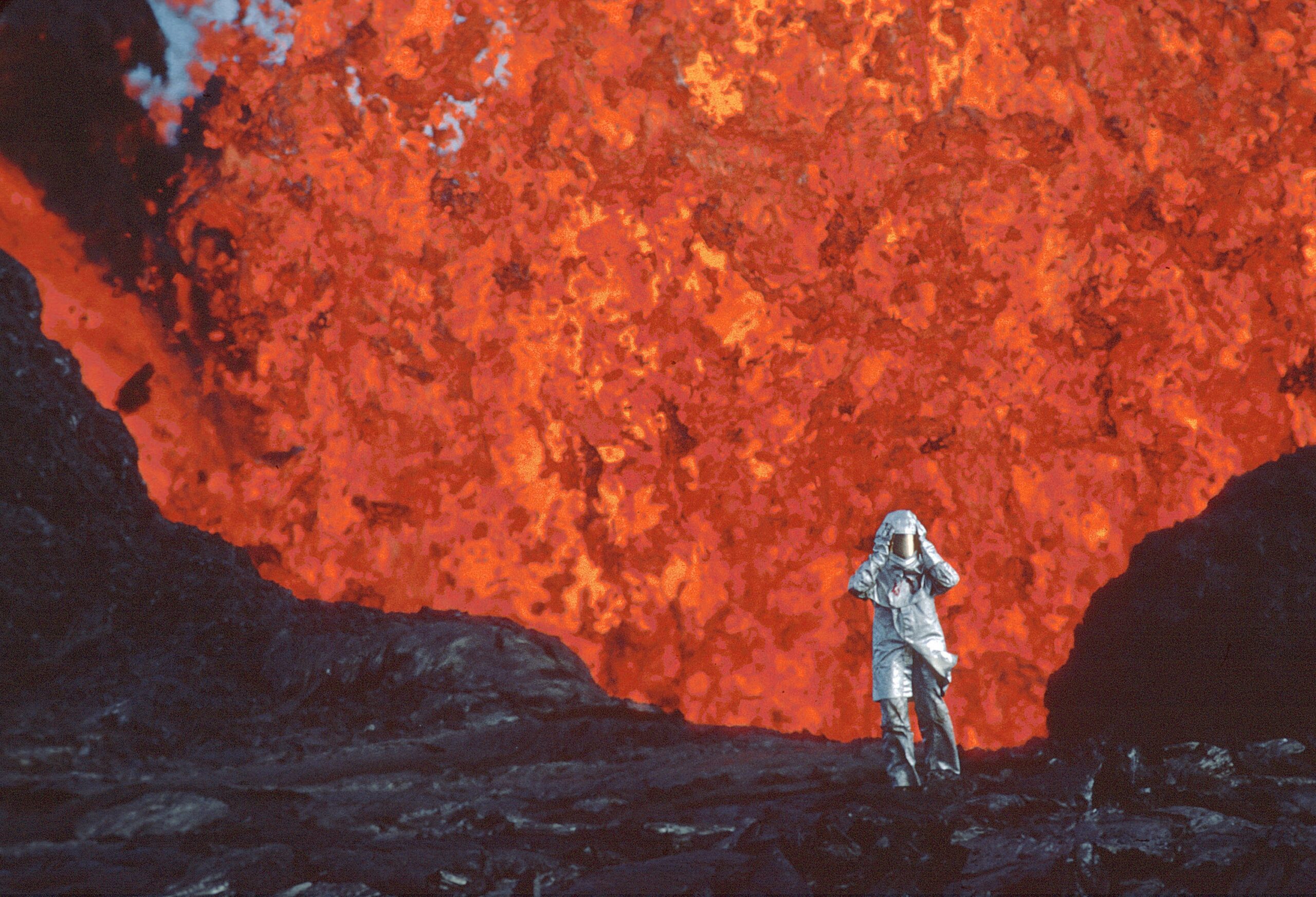
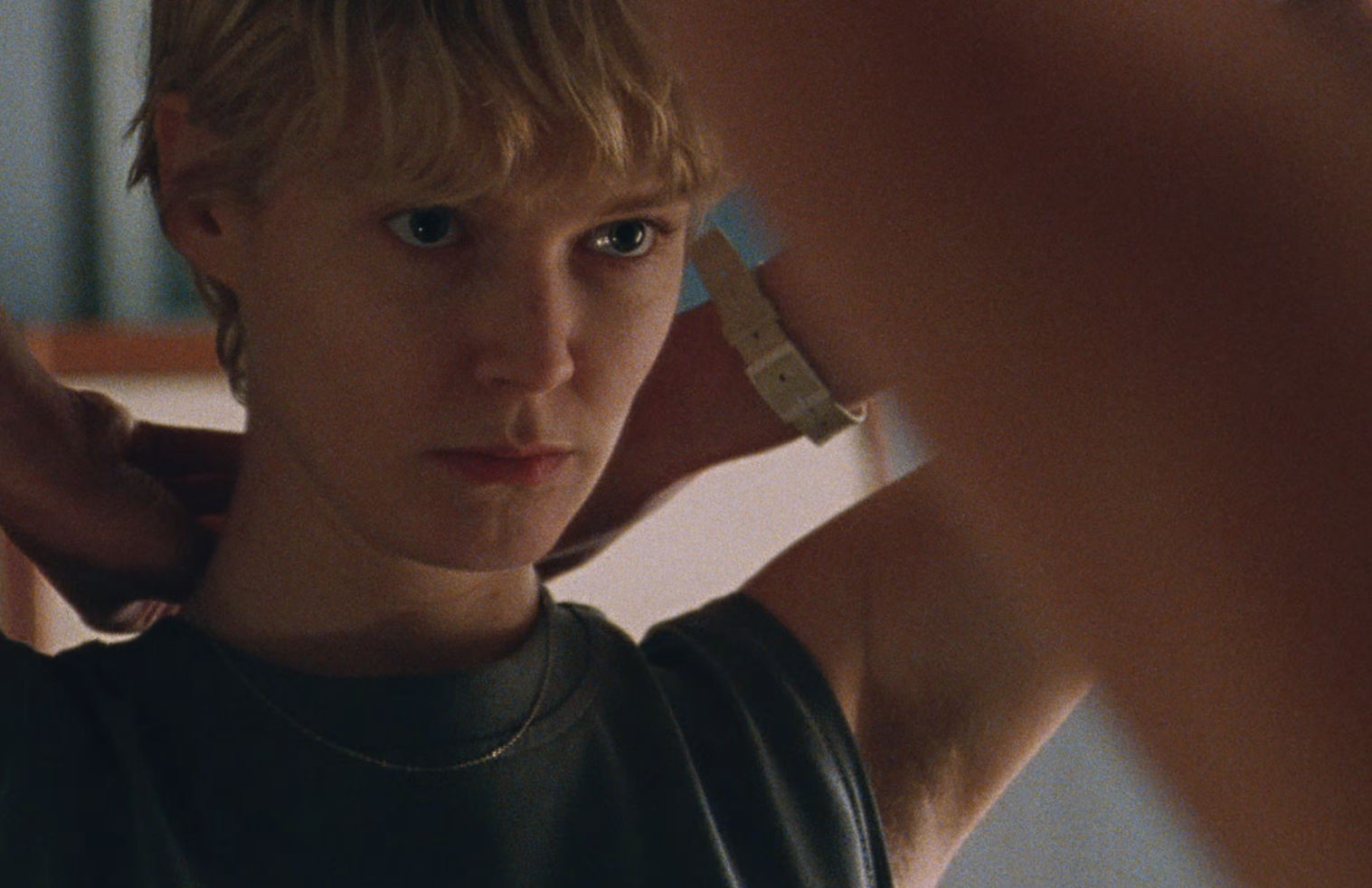
 x5
x5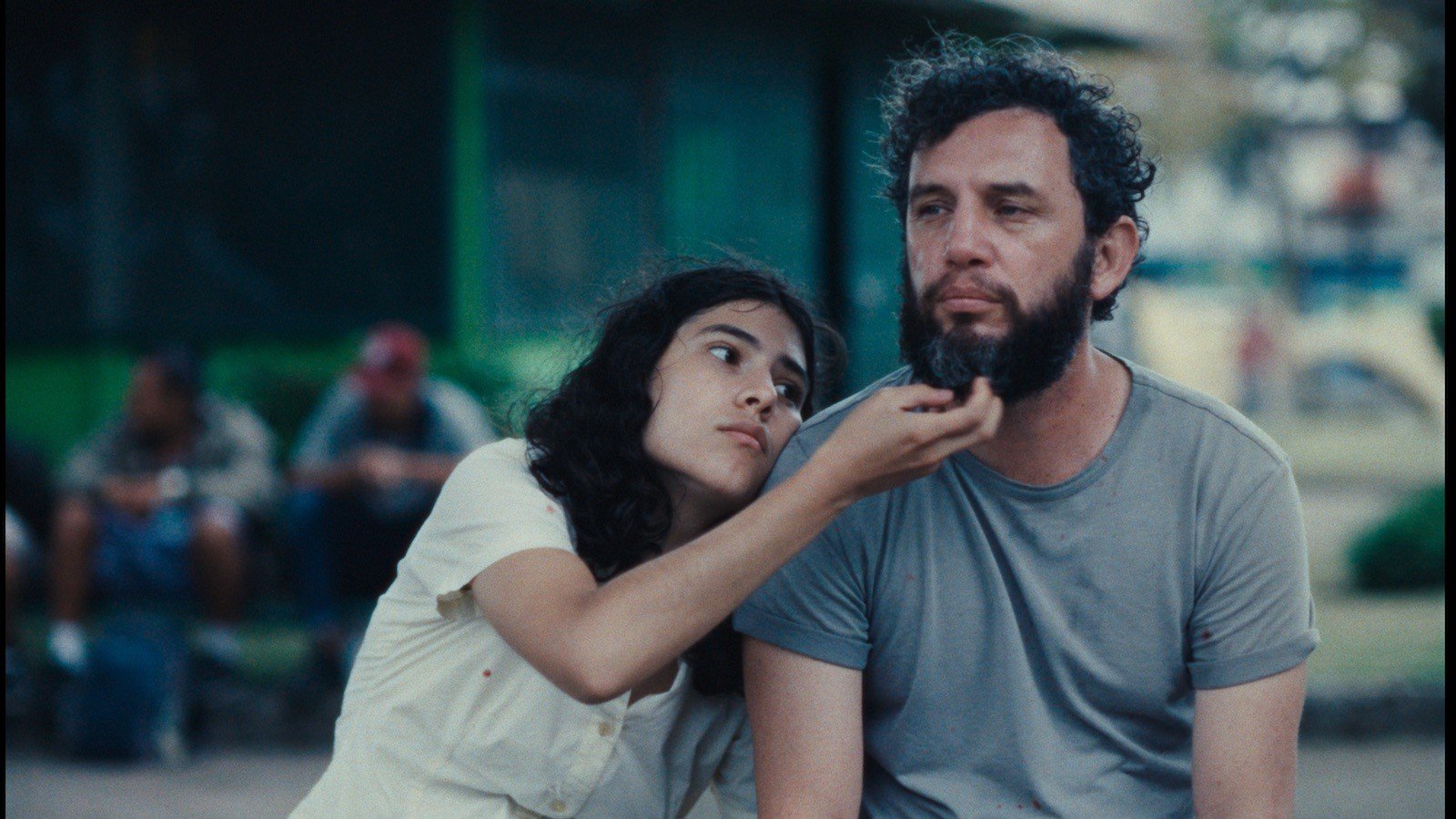
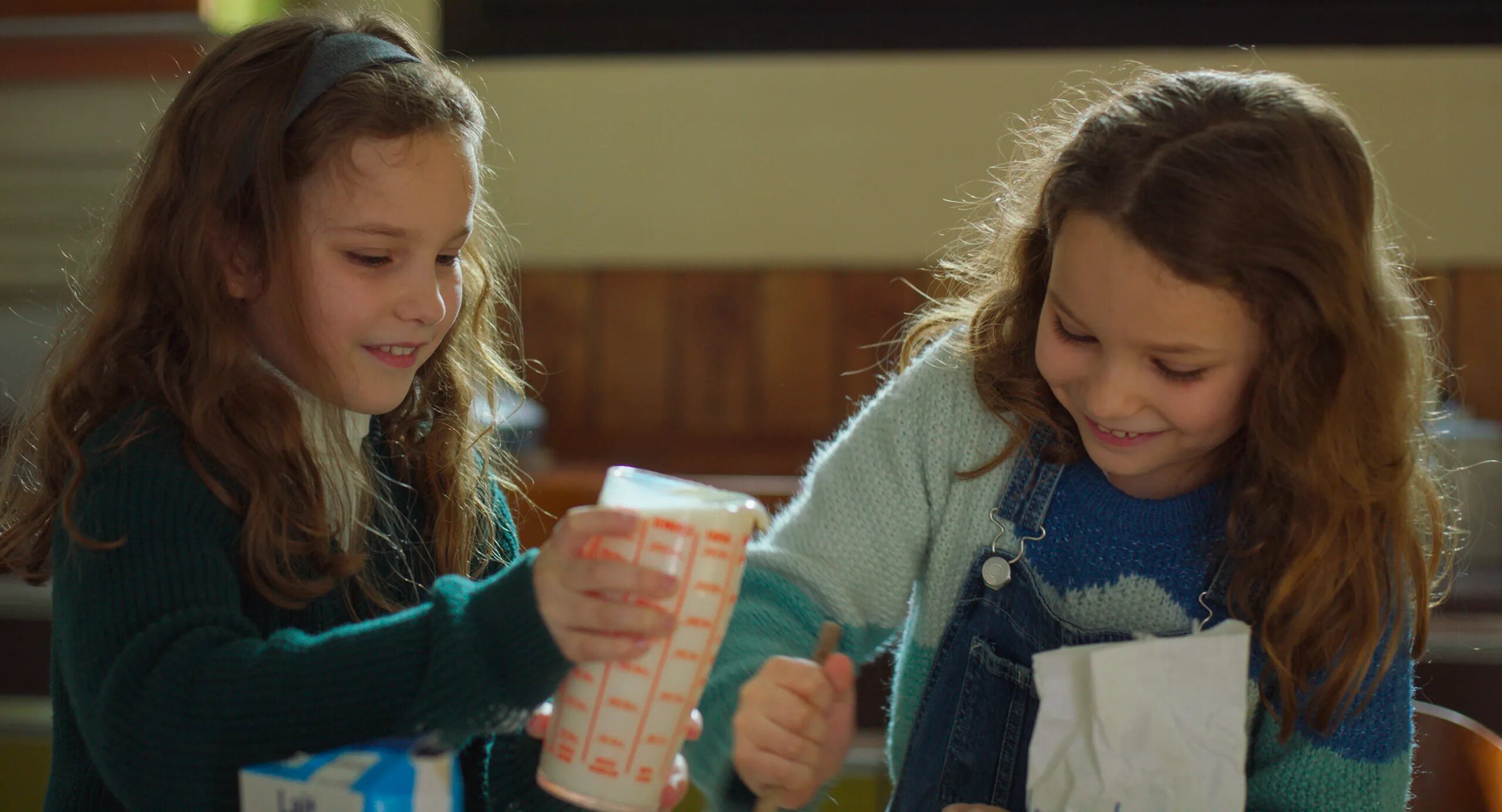
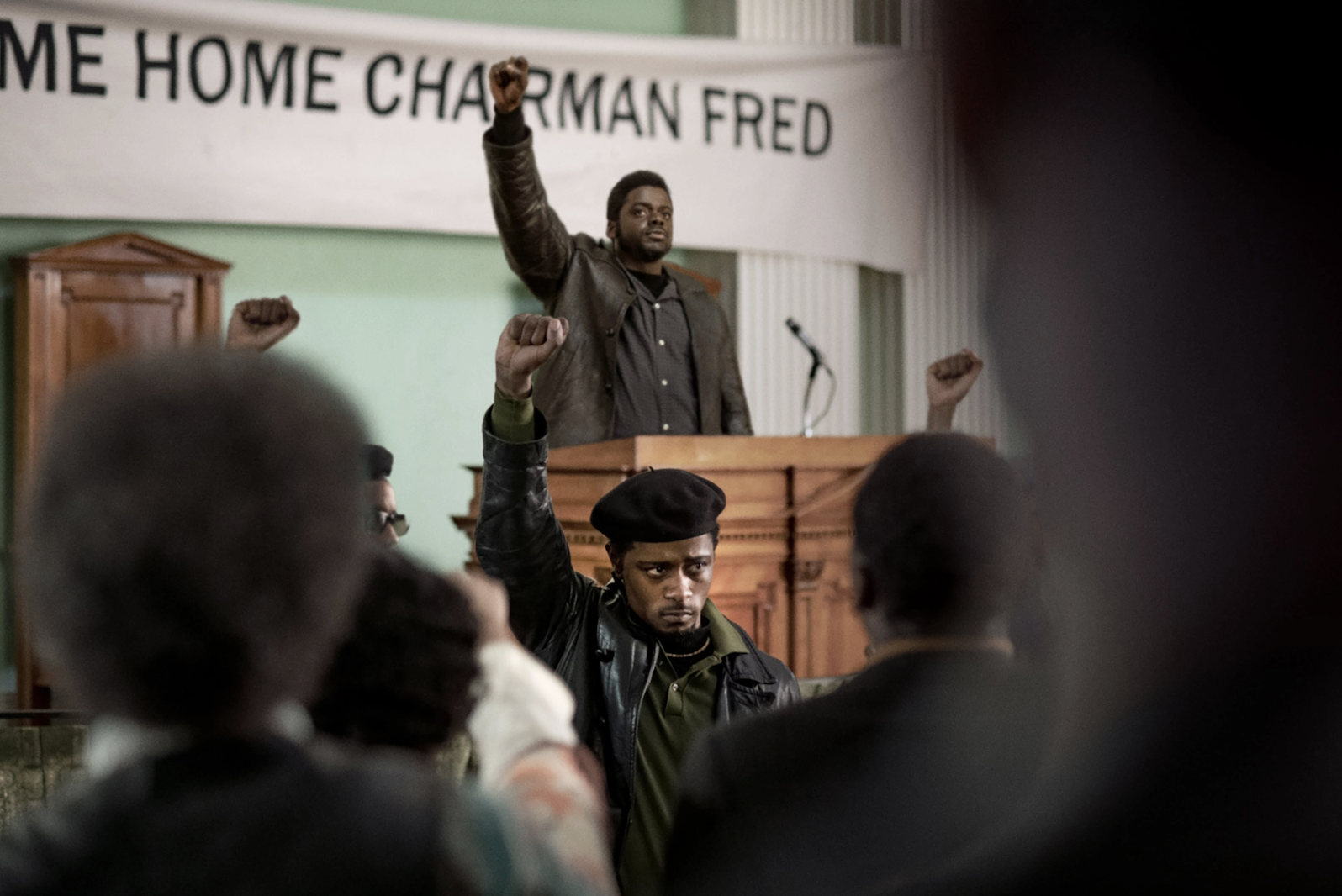
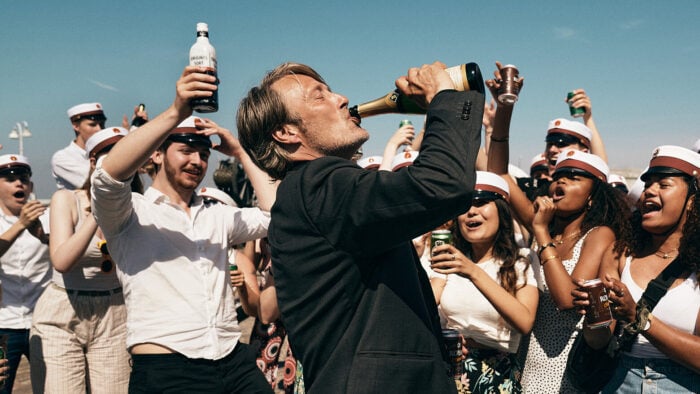
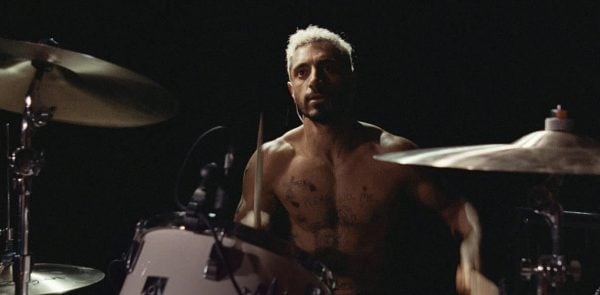
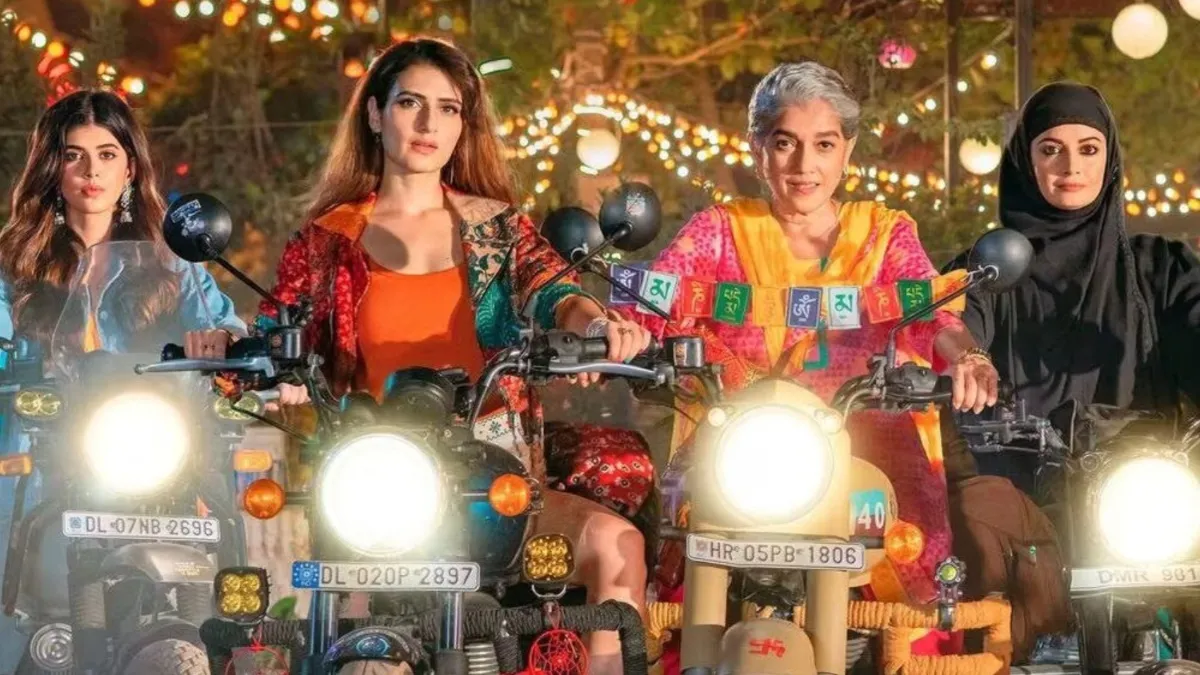
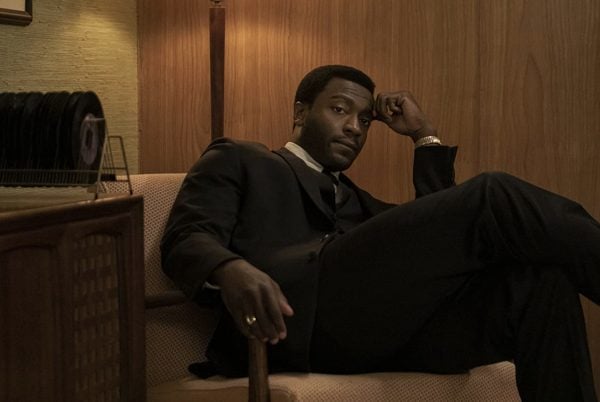
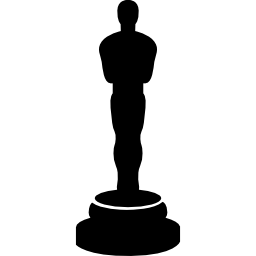 x3
x3